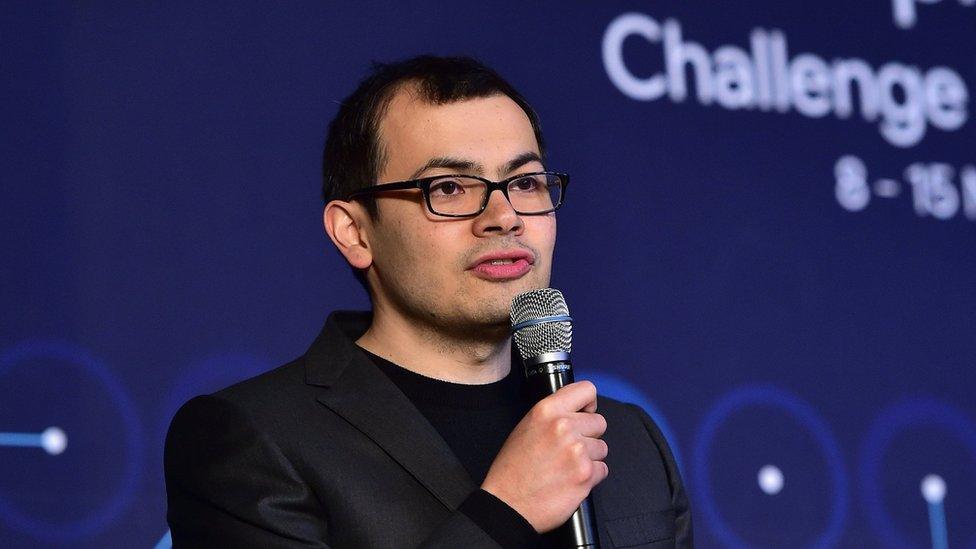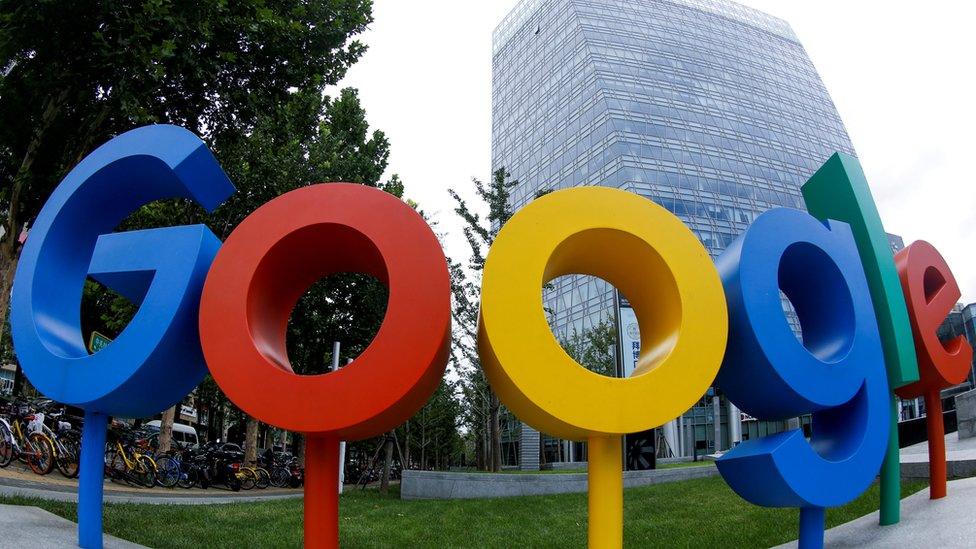DeepMind founder Demis Hassabis reveals his darkest moment
- Published
- comments

He is the child from North London who built a multi-million technology company, sold it to Google and is now widely regarded as one of the world's leading experts in artificial intelligence.
Demis Hassabis, the founder and chief executive of the London-based technology giant, DeepMind, has revealed that he almost failed in one of his first business ventures and was fortunate to avoid driving the gaming firm he started "into the wall at 100mph".
He said he endured "some really dark hours" - as had the teams working with him.
Mr Hassabis said much of his success was down to luck and also to being able to spot when he was becoming "self-delusional" about whether an idea was going to work.
In an interview for a new BBC podcast, The Disrupters, looking at the role of entrepreneurs in the economy and society, Mr Hassabis said that failure and being able to learn from it was an essential part of ultimately being successful.
"I think the interesting balance you have got to get right as an entrepreneur is to have a healthy disregard for what people are saying. But the key thing also is, how do you not be delusional as well?" he said.
"You could easily just go 'I'm not going to listen to any feedback because it's people telling me negative things about my idea - I'm just going to ignore it, because I totally believe in it'.
"Now it still might not be a good idea - just because you passionately believe in it, that doesn't make it a good idea."
'Five years ahead'
Mr Hassabis was speaking to Rohan Silva, the entrepreneur and former government advisor on technology, and me, when I was the BBC's Economics Editor, about how to successfully build a business.
He sold his AI business to Google in 2014 for £400m and now runs it as part of Alphabet, which owns Google.
Before launching DeepMind, Mr Hassabis, a child chess prodigy, built a gaming company called Elixir Studios.
It followed significant successes in the gaming industry where he was lead programmer at Bullfrog, the creator of the global phenomenon, Theme Park.
Elixir attempted to create a nation-building game that Mr Hassabis now admits was "way ahead of the market".
"You don't want to be 50 years ahead of your time, you want to be five years ahead. And with some of the things we were trying to do in my first company, I think we were way ahead of the hardware and frankly where the market was," he said.
"The classic and most tragic example of that is Charles Babbage being 100 years ahead of his time with computers."

DeepMind is owned by Google's parent firm Alphabet
Mr Hassabis said his response was to work longer hours, rather than realise there was a problem with the original concept.
"I learnt from my first company about calibrating my own judgement about how difficult, how ambitious [you needed to be]. Before that I just thought - the more ambitious is better.
"Because the bigger the idea the better, the more you push everybody the better, and if everybody is on board with that, your talented people, then presumably they're smart as well so we must be able to achieve it.
"But actually you can get self-delusional thinking, you can actually over-inspire people, weirdly, which is something I found."
Mr Hassabis said he ended up working "ridiculous hours".
"Every hour there was," he told Rohan and me. "My whole team was doing that. It was just not sustainable.
"I would say: 'We will do it for six months'. And then it would be two years later.
"It was bad, and of course you can't do your best creative work like that, you burn people out.
"We were all young, so we had that level of energy, but I realise now a lot of those hours of pain that we did, didn't make any difference to the outcome. So how is that smart?"
The Elixir game was completed, but not to the level Mr Hassabis originally hoped.
"We did deliver it, it sold pretty well and it actually made money for our publishers.
"But it didn't make us any money because we were too far in the hole with what we'd already borrowed and scraped together to finish the game.
"I'm proud of what we did, we finished, and I always finish what we start out to do - but it was only a fraction of the original vision.
"I maintained all the right relationships with investors, because we did it all correctly.
"So we didn't hit the wall at 100mph. We actually saw the walls coming and slowed down - that's really important."